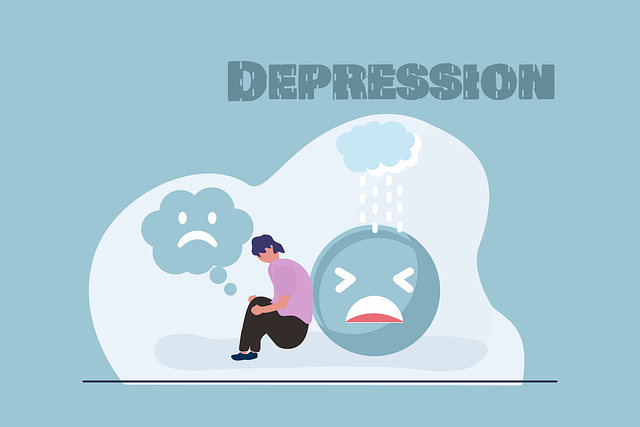Parker Terminal Illness Therapy (PTIT) revolutionizes healthcare accessibility through targeted community outreach programs focused on mental wellness. By offering tailored podcasts, workshops, and interactive elements like journaling exercises, PTIT educates, supports, and creates a sense of belonging for individuals facing terminal illness. Their successful approach involves customizing activities, building community partnerships, integrating burnout prevention for providers, and continuously measuring outcomes to ensure impactful, sustainable programs that enhance mental health and well-being.
“Community outreach programs play a pivotal role in extending the benefits of support and care, especially for terminally ill individuals. This article explores the transformative potential of such initiatives through the lens of Parker Terminal Illness Therapy. We delve into understanding community outreach, its profound impact, and designing effective programs tailored to engage and support patients.
Furthermore, we provide practical steps for implementation and highlight best practices, followed by a discussion on measuring success. By exploring these aspects, this piece aims to showcase how Parker Terminal Illness Therapy can enhance community engagement.”
- Understanding Community Outreach: Its Role and Benefits for Parker Terminal Illness Therapy
- Designing Effective Programs: Strategies for Engaging and Supporting the Target Audience
- Implementing Outreach Initiatives: Practical Steps and Best Practices
- Measuring Success and Impact: Evaluating the Effectiveness of Parker Terminal Illness Therapy Programs
Understanding Community Outreach: Its Role and Benefits for Parker Terminal Illness Therapy

Community outreach programs play a pivotal role in enhancing the accessibility and impact of healthcare services, particularly for specialized treatments like Parker Terminal Illness Therapy. By extending support directly into communities, these initiatives bridge the gap between medical resources and those who need them most. This approach ensures that self-care practices and emotional healing processes are not just theoretical but readily available, empowering individuals to navigate their health journeys with resilience.
For Parker Terminal Illness Therapy, community outreach is a game-changer. It allows for the production of tailored mental wellness podcast series, offering valuable insights and guidance on managing terminal illness. Such initiatives not only educate but also foster a sense of belonging, challenging the isolation often associated with serious health conditions. By engaging communities, Parker Terminal Illness Therapy can create a supportive network, enhancing the overall well-being of individuals facing these challenges.
Designing Effective Programs: Strategies for Engaging and Supporting the Target Audience

Designing effective community outreach programs that focus on mental wellness, like Parker Terminal Illness Therapy, requires a deep understanding of the target audience’s unique needs and preferences. Engaging individuals in meaningful ways is essential for fostering trust and encouraging participation. One strategy involves tailoring activities to cater to diverse interests; this could include creative workshops, support groups, or outdoor adventures, ensuring accessibility for all. Providing clear and consistent communication through various channels, such as social media, local events, and partnerships with community centers, helps build anticipation and excitement.
Incorporating interactive elements like Mental Wellness Journaling Exercises Guidance can significantly enhance program effectiveness. These exercises not only promote self-reflection but also offer practical tools for managing stress and improving mental health awareness. By combining these strategies with ongoing feedback from the community, organizations can create a sense of belonging and empower participants to take charge of their well-being, ultimately fostering a supportive ecosystem for everyone involved in the Community Outreach Program Implementation process.
Implementing Outreach Initiatives: Practical Steps and Best Practices

Implementing community outreach programs is a powerful way to extend support and promote mental wellness among diverse populations, especially those facing challenges like terminal illness. Parker Terminal Illness Therapy has successfully utilized initiatives such as mindfulness meditation sessions and mental wellness journaling exercises guided by professionals. These programs not only provide practical steps for coping but also foster connections within communities, enhancing overall well-being.
When executing outreach, best practices include tailoring activities to specific needs, ensuring accessibility, and promoting participation through community partnerships. For healthcare providers, burnout prevention strategies are crucial components of these initiatives. Incorporating guidance on mindfulness meditation techniques can help professionals maintain balance while caring for others. By following these practical steps and adopting evidence-based practices, organizations like Parker Terminal Illness Therapy can create impactful and sustainable outreach programs that positively influence the mental health landscape.
Measuring Success and Impact: Evaluating the Effectiveness of Parker Terminal Illness Therapy Programs

Measuring the success and impact of Parker Terminal Illness Therapy programs is paramount to understanding their effectiveness. This involves assessing not just the immediate outcomes but also the long-term benefits for participants. By employing robust evaluation methods, including surveys, interviews, and case studies, therapists can gauge how well the programs address emotional healing processes and empathy building strategies. This data provides insights into the program’s ability to enhance participants’ coping mechanisms and stress management skills.
Additionally, tracking participant engagement, retention rates, and improvements in quality of life indicators offers a comprehensive view of the therapy’s impact. Regular reviews of these metrics allow for continuous improvement, ensuring that Parker Terminal Illness Therapy programs remain tailored to the evolving needs of individuals navigating terminal illnesses and their families.
Parker Terminal Illness Therapy’s community outreach programs have proven to be a powerful tool for engagement and support. By implementing well-designed strategies, as outlined in this article, organizations can significantly impact the lives of those affected by terminal illnesses. Through practical steps, such as tailored education and peer support groups, the program fosters a sense of community, alleviates suffering, and enhances the overall quality of life for patients and their families. Measuring success involves evaluating both qualitative and quantitative data to ensure the programs’ sustainability and continuous improvement, ultimately benefiting the greater Parker Terminal Illness Therapy community.














